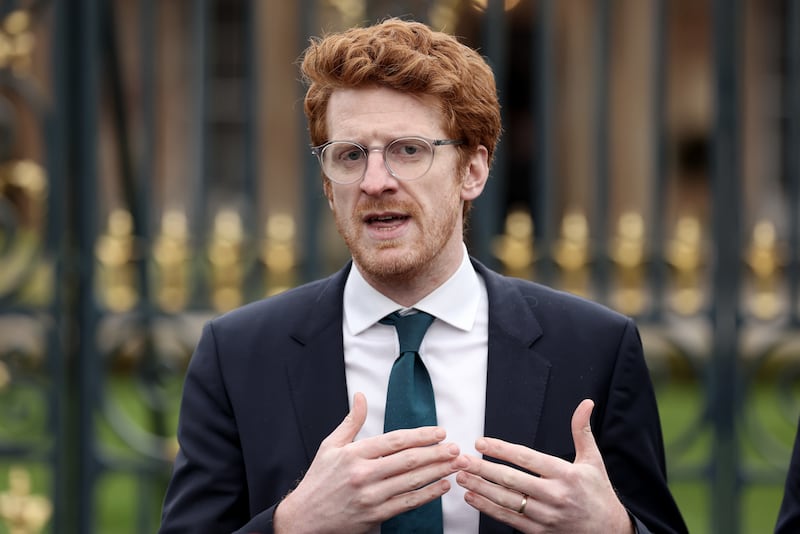Michelle O’Neill has said an assembly committee tasked with reviewing the structures of the Good Friday Agreement is the most appropriate forum to discuss “fundamental change” of the institutions.
The Sinn Féin first minister said Stormont’s assembly and executive review committee was the “best place” to take forward measures that could potentially remove the largest nationalist or unionist parties’ ability to collapse power-sharing.
Ms O’Neill, who on Monday was answering questions on behalf of the Executive Office for the first time since being appointed first minister, was responding to the SDLP’s Matthew O’Toole, who has written to the Sinn Féin deputy leader and her DUP counterpart Emma Little-Pengelly seeking a pledge that they will not walk away from the institutions during the remainder of the mandate.
The first minister said she planned to respond to the opposition leader’s letter but argued that the assurances he was seeking were “bigger than the Executive Office”.
“What you’re referring to is fundamental change and I think the best place for that is in the political space,” she said.
“I think the assembly and executive review committee is the best place for that to be taken forward.”
The committee in question has not sat since October 2016. Of the 11 committee’s members listed on the assembly’s website, only two are sitting MLAs.

Mr O’Toole told The Irish News that it was “mind boggling” that the first minister wouldn’t pledge not to collapse power-sharing “given her repeated criticism of the DUP boycott”.
“The first minister has an obvious and instant means of stopping the institutions collapsing – promise she won’t collapse them,” he said.
It also emerged during questions to the first minister that a “technical report” is being compiled on mobile devices used by ministers and special advisers during the Covid pandemic, from which WhatsApp messages were wiped.
Asked by Foyle MLA Mark H Durkan for an update on the investigation into why the phones and “messages relevant to the Covid19 inquiry” were deleted, Ms O’Neill said a fact-finding report into the matter had been shared with the inquiry’s legal team in early December and that later that month the head of the civil service commissioned “technical analysis” of the devices.
“The analysis of devices is ongoing and the Covid inquiry will be advised of the final outcome of that exercise,” Ms O’Neill said.
In December, the Executive Office claimed the Covid inquiry prevents it from explaining how and when WhatsApp messages sent by former ministers during the pandemic were deleted.
The first minster said more than 290 strings of WhatsApp engagements were produced by the Executive Office.
She said she was “certain that policy decisions were not decided by WhatsApp, that would have been through the official channels”.


